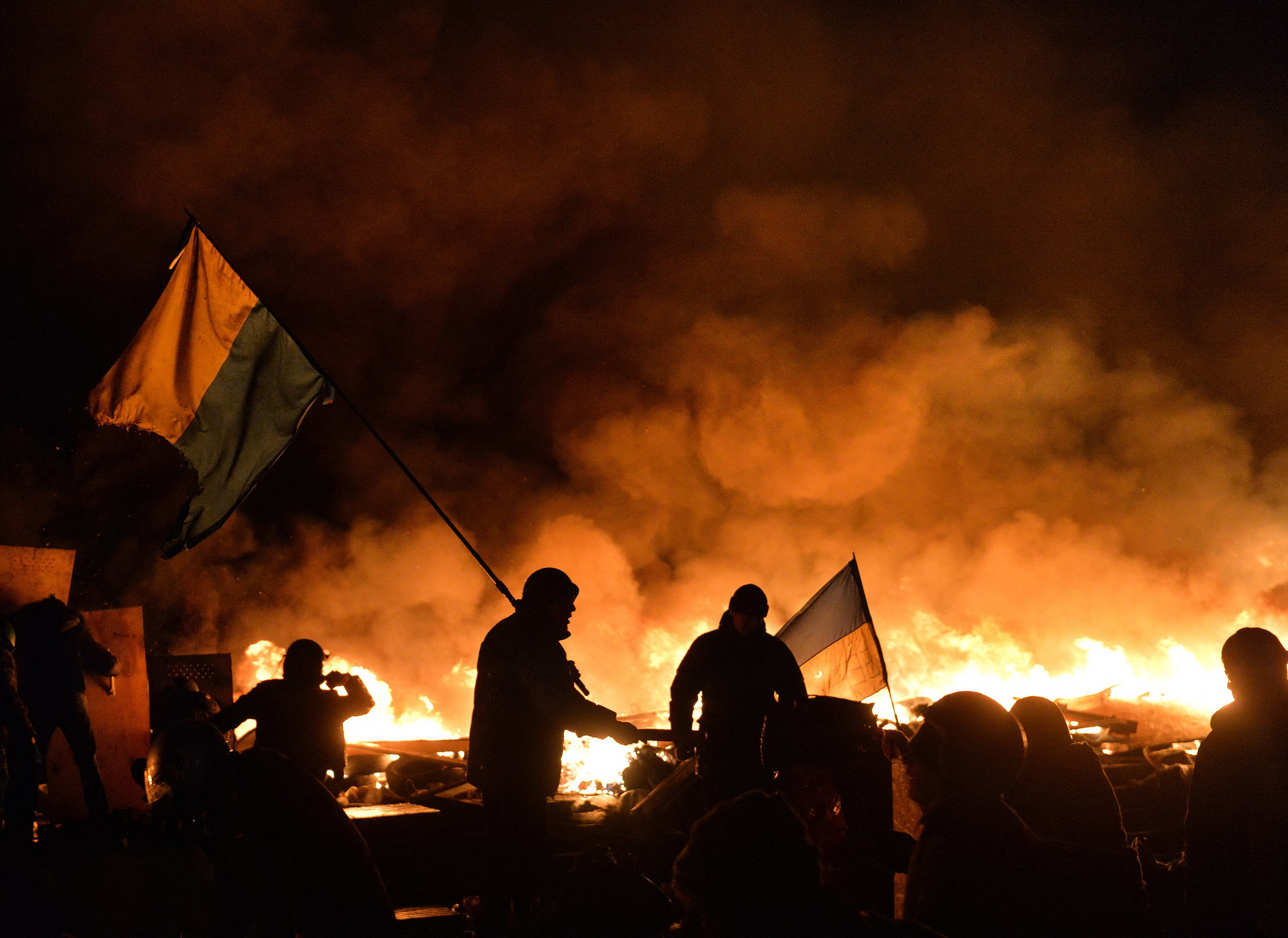Ex-commanders of Berkut riot police charged with destroying weapons used to shoot EuroMaidan protesters

Ukraine's State Bureau of Investigation said on Jan. 29 it charged two ex-commanders of Berkut riot police with destroying weapons used to shoot protesters during the EuroMaidan Revolution in 2014.
Since the revolution took place a decade ago, over 30 people have been charged with committing crimes against protesters, five of whom have received sentences from the court.
The uprising was sparked in November 2013 after pro-Kremlin President Viktor Yanukovych refused to sign the long-awaited Association Agreement with the European Union.
A few hundred people came to Maidan Nezalezhnosti, Kyiv's central square, to protest this decision but were forced out on Nov. 29, 2013, by Berkut officers who used excessive violence.
The protests eventually transformed into a revolution that culminated in February 2014, ending with Yanukovych fleeing to Russia. More than 100 people were killed during the revolution.
The bloodiest day of the EuroMaidan was Feb. 20, 2014, when Berkut officers killed 48 people and injured 90 more. After the killings, Berkut's former regiment commander and company commander tried to destroy the evidence, according to the investigation.
The next day, they allegedly collected firearms, which were used to shoot the protesters, and illegally destroyed them. The weapons were cut into pieces with an abrasive material, the serial number markings were removed, and the arms' remains were then dumped in a river, the bureau wrote.
Those weapons include 24 7.62 mm AKMS assault rifles, a Dragunov sniper rifle, three 12 mm Fort-500 rifles, and a 9 mm Fort-12 rifle.
Previously, the former Berkut company commander and 20 officers from this company were accused of obstructing peaceful protest actions by using firearms on unarmed activists. The charges have been sent to court.
The Sviatoshyn District Court in Kyiv announced the verdict on five Berkut riot police officers, who were accused of killing EuroMaidan protesters, on Oct. 18 last year.
Only two suspects were present in the courtroom, with one of them having been acquitted and the other having received a five-year prison sentence. Since the latter had already spent over four years in pre-trial detention, he was released from serving the new sentence.
Three more Berkut officers were given prison sentences in absentia as they now live in Russia, having been swapped in 2019 in a prisoner exchange.














